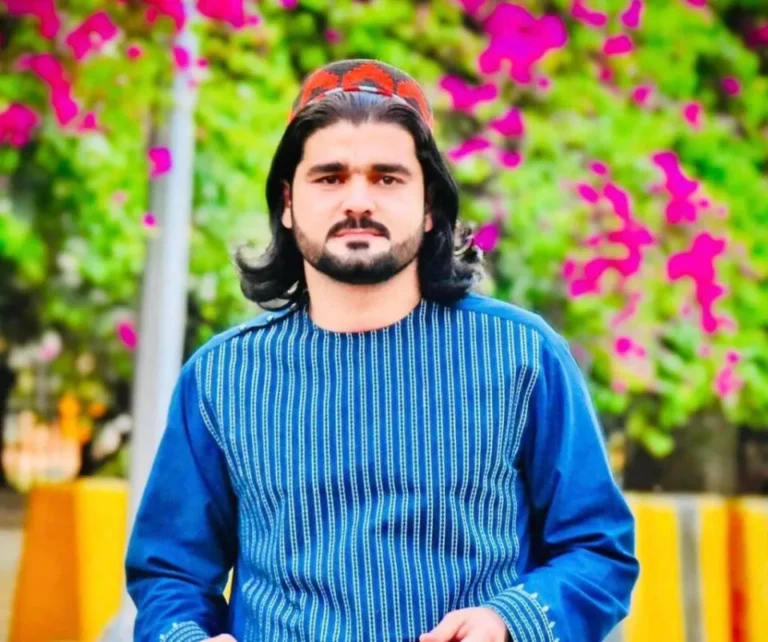Copenhagen: Attacks targeting other prominent Pashtun figures have also had tragic consequences.
On July 7, 2024, renowned Pashto poet and human rights activist Giraman Wazir was brutally attacked in Pakistan’s capital by assailants allegedly linked to Pakistan’s security services. The attack, carried out by what the Pakistani regime called “unidentified militants,” left Giraman Wazir severely injured and in critical condition, he subsequently fell into a coma and never recovered from it until his death.
Giraman Wazir, known for his advocacy for peace and for his opposition to enforced disappearances, extrajudicial killings and human rights violations, particularly among the Pashtun community, was recently released after seven months of illegal imprisonment by the Pakistani authorities. His critical stance against state-sponsored terrorism and his exposure of human rights violations against Pashtuns made him a target of harassment and violence.
The Pashtun Tahfuz Movement (PTM), a Europe-based organisation representing Pashtuns around the world, immediately launched a campaign to have Giraman Wazir urgently airlifted to Germany for specialised medical care. Concerns over his safety and the adequacy of medical care in Pakistan were paramount. However, medical experts in Islamabad and abroad recommended not transferring him given his precarious condition.
An FIR has been filed in the case, but PTM founder Manzoor Pashteen expressed dissatisfaction at the lack of notable efforts by the Pakistani authorities to arrest or apprehend the culprits, who are believed to have links to security agencies.
“The attack on Giraman Wazir is not an isolated incident, but part of a pattern of Pakistan’s security and intelligence agencies allegedly using such tactics to suppress dissent and human rights activism. Similar attacks against other prominent Pashtun figures, including Senator Usman Kakar, Arif Wazir and Arman Roni, have previously had tragic consequences and highlight the dangers faced by activists in the region.
Former Afghan presidents Ashraf Ghani and Hamid Karzai condemned the attack on Ghiraman Wazir and expressed international concern over human rights violations and terrorism in Pakistan, particularly against the Pashtun community.
Despite the gravity of the situation, there has been a severe lack of coverage by Pakistani and international media, drawing criticism from aid groups and observers who say such cases should be widely covered to pressure accountability and justice.
The silence from political leaders and responsible authorities in Pakistan and abroad following the death of Giraman Wazir has led to growing calls for a strong response to protect activists and uphold human rights in the region.
“The attack against Giraman Wazir and other activists is a stark reminder of the dangers faced by human rights defenders in Pakistan, where speaking out against state policies can lead to severe retaliation. Calls for justice and protection for activists are echoed around the world, calling for a response to attacks against individuals like Giraman, and for transparency and accountability in protecting human rights in the region.”
Refsa Bayanhayil, executive director of the Danish Pashtun Protection Movement, is a human rights and women’s rights advocate.

